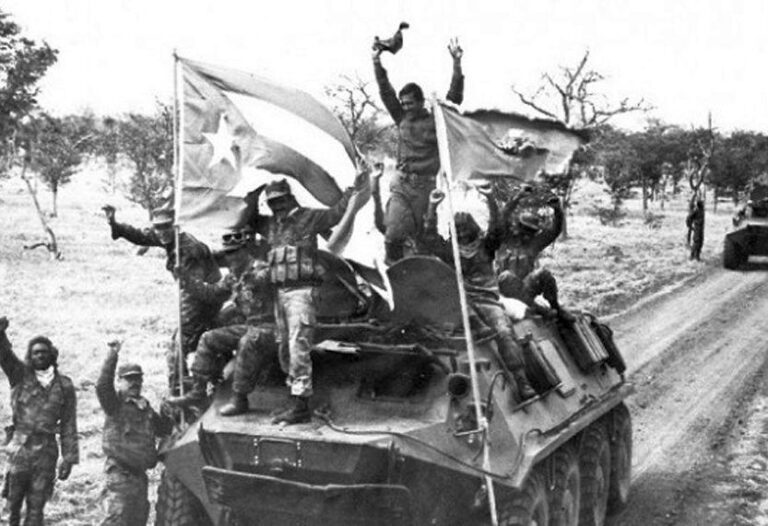Operation Carlota, in which Cuba assisted Africa, evokes anecdotes and pride today, half a century after its inception, as the island’s most just, prolonged, massive, and successful internationalist campaign.
Carlota was an African slave who, on November 5, 1843, led a rebellion at the Triunvirato sugar mill in Matanzas, in the central region of the island.
132 years after being brutally dismembered by Spanish slave owners, her name inspired the operation that officially began on November 4, 1975.
Around that time, Cuban advisors shed their blood for the first time alongside Angolan soldiers to prevent a South African military invasion force from taking Luanda, the capital of Angola.
Upon learning of these events in Cuba, and in response to a plea for help from Agostinho Neto, leader of the People’s Movement for the Liberation of Angola (MPLA), Commander-in-Chief Fidel Castro ordered the deployment of the first combat units by air and sea.
More than 300,000 combatants and another 50,000 civilians went to Angola to overcome the civil war, repel the South African invasion and attacks from Zaire, and guarantee the independence of the African nation. This action was also crucial for the liberation of Namibia and the dismantling of apartheid in South Africa.
The historical leader of the Cuban Revolution, Fidel Castro, along with Army General Raúl Castro, was always at the forefront of coordinating Operation Carlota.
Documentary sources attest to the sense of pride among Cubans regarding the war in Angola, which explains its widespread popular support. Operation Carlota concluded on May 25, 1991.
An official statement from the Cuban Ministry of the Revolutionary Armed Forces specified that 2,016 Cubans gave their lives in Angola, 787 in combat, 524 from illness, and 705 from accidents.
The blood of the African Carlota mingled with that of the Cubans in history.
Fifty years after the start of Operation Carlota, glorious epics remain, including the decisive battle of Cuito Cuanavale, and the names of cities and places in Angola such as Cabinda, Cunene, Cangamba, Quifangondo, Ebo, Sumbe, Benguela, and many more where Cubans served remain familiar.
The solidarity between the two peoples endures to this day, as Cuban professionals from various fields carry out internationalist missions on the African continent.
[ SOURCE: AGENCIA CUBANA DE NOTICIAS ]

